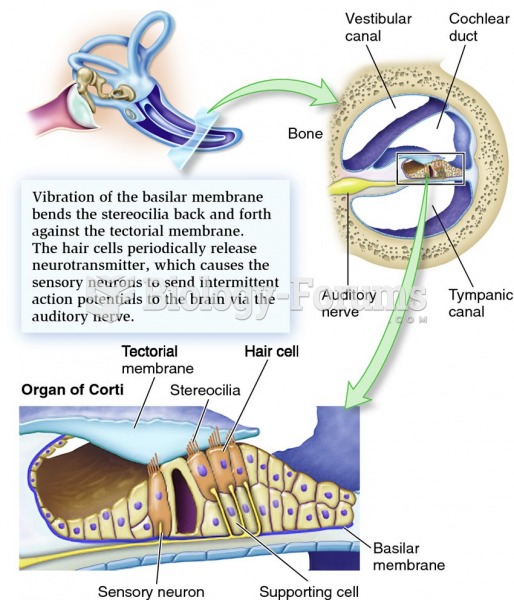|
|
|
Did you know?
If all the neurons in the human body were lined up, they would stretch more than 600 miles.
Did you know?
Throughout history, plants containing cardiac steroids have been used as heart drugs and as poisons (e.g., in arrows used in combat), emetics, and diuretics.
Did you know?
In ancient Rome, many of the richer people in the population had lead-induced gout. The reason for this is unclear. Lead poisoning has also been linked to madness.
Did you know?
Patients who have been on total parenteral nutrition for more than a few days may need to have foods gradually reintroduced to give the digestive tract time to start working again.
Did you know?
About 100 new prescription or over-the-counter drugs come into the U.S. market every year.






![Chickenpox rash. (Centers for Disease Control and Prevention [CDC]/Ann Cain)](https://biology-forums.com/gallery/30/medium_548020_08_06_17_10_52_37_306981954.jpeg)
